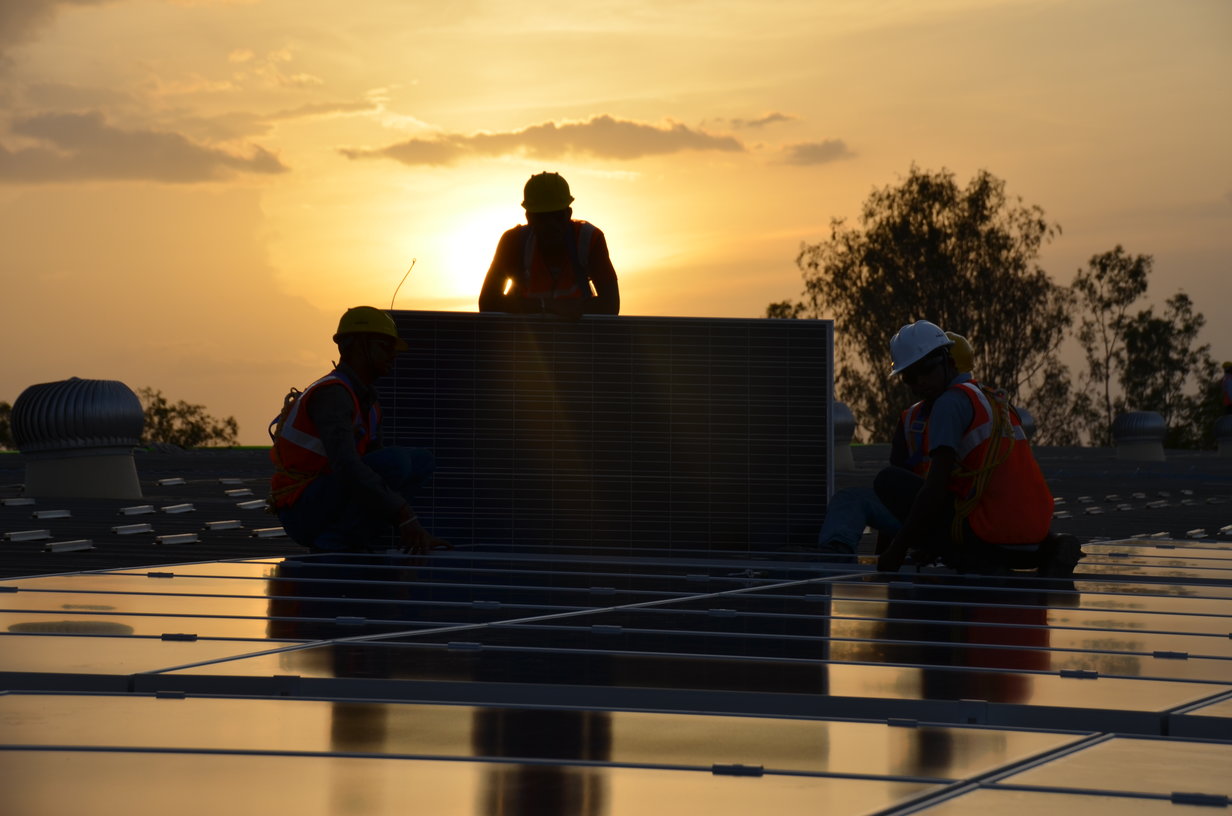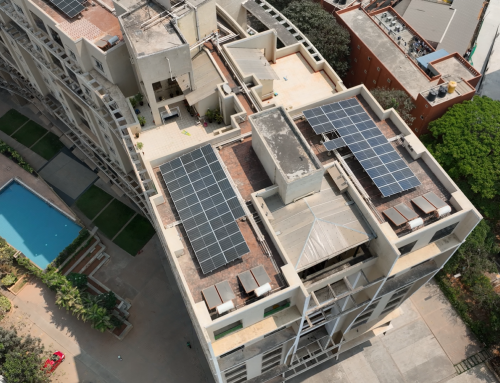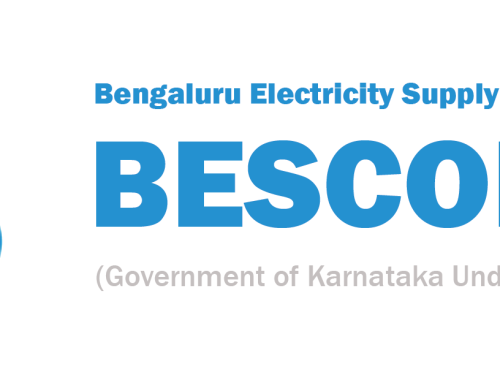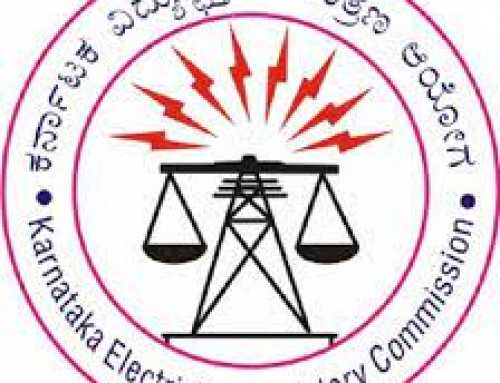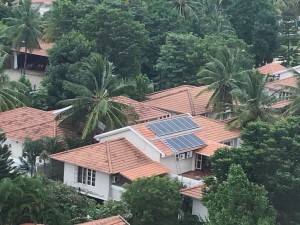
Blog on : How solar policy has changed over the years in Karnataka and forebode changes that are expected to come up in the future after the current policy expires on March 31st, 2020
- Background:
The first Karnataka state solar rooftop policy has come into effect in Oct 2013. This policy was set up by the Karnataka Electricity Regulatory Commission (KERC). However, the policy came into effect only in 2014 after KERC has listed out the implementation guidelines to all the ESCOMS.
Under this order,consumers were allowed to install solar plant and avail net-metering mechanisms to offset electricity bills. The energy produced by rooftop solar unit is set off against the energy supplied to the consumer, and the difference is billed. Any excess energy that is produced and exported to the grid is purchased by ESCOM’s at the tariff of Rs 9.56/unit. This policy was applicable for any agreement signed on or after 01-04-2013 and up to 31-03-2018 for a period of 25 years.
However, the tariff amount set for net-metering has changed over time, almost once every year. Current tariff is Rs 3.07/- as on today for systems above 10 kWp and Rs 3.99/- for systems below 10 kWp.
- Chronological order of the fundamental policy changes over past 6 years:
- KERC tariff determination order for Solar rooftop plants issued in Oct 2013:
- Net metering as described above is allowed for any consumer with no limitation on sanctioned load. KERC has determined the solar tariff, of Rs 9.56 ( without subsidy ) and Rs 7.20 ( with subsidy) per unit of net energy exported to the grid, for solar rooftop power plants.
- KERC tariff determination order for Solar rooftop plants issued in July 2015:
- The tariff amount was untouched for solar rooftop plants in order to encourage more consumers to come forward to install solar on their rooftops.
- KERC tariff determination order for Solar rooftop plants issued FY17-18, issued in May 2016 :
- KERC has reduced the tariff amount from Rs 9.56/-per unit to Rs 7.08/- per unit for systems below 10kWp and Rs 6.14/- per unit for systems between 50kWp to 100 kWp.
- Reduced the restricted solar capacity to 150% of the sanctioned load.
- Introduced a gross metering scheme along with net metering for domestic as well as institutional consumers.
- KERC order to allow Multiple Solar plants in a single premises, issued in Sept 2017:
- As per this order multiple or single Solar rooftop plants could be allowed on a common rooftop. This set the policy for solar installations on common rooftops of the apartments.
- KERC tariff determination order for Solar rooftop plants issued FY19, issued in May 2018:
- KERC has further reduced the tariff amount from Rs 3.56/- per unit for projects 1MW and below.
- Reduced the solar capacity to 100% of the sanctioned load although 75% was proposed in the draft paper.
- This policy expired on March 31st, 2018.
- KERC tariff revision order for solar rooftop plants up to 10 kWp for FY19, issued in Dec 2018:
- For Domestic customers the tariff was increased to Rs 4.15 from Rs 3.56/-. However, this tariff amount was never accepted by BESCOM.
- This policy expired on March 31st, 2019.
- KERC tariff determination order for Solar rooftop plants FY20, issued in Aug 2019:
- KERC has reduced the tariff from Rs 4.15 per unit to Rs 3.99 per unit for non-domestic consumers and Rs 3.07 per unit for all other customers.
- KERC Decision on various models and guidelines for solar rooftop plants Dec 2019:
- This is the latest of the order from KERC on solar rooftop systems installed by third-party investors and utilities like BESCOM on rooftops of consumers under different business models. As per this, the commission allows only gross metering for third party investments in non-residential buildings and both net metering and gross metering in the residential segment. If it’s net-metering, cross-subsidy surcharges are also levied. KERC order Dec 9, 2019

Let the sun shine bright.
- Expected changes in new tariff order for FY2020-21:
Over the last 6 years, the solar rooftop policy in thestate of Karnataka has gone through major changes. Based on some of the changes that are being recently implemented or proposed in Karnataka and in other states, we anticipate that further changes in the rooftop solar policy are in the offing.
Following are some of the changes that could be implemented by KERC in its new tariff determination order:
- Remove the current net metering policy for all consumers and introduce a gross metering scheme under which the entire energy is fed into the distribution network, BESCOM shall pay for the energy recorded in the gross meter. While the consumer shall be billed as per the retail supply tariff approved by the commission from time to time.This gross-metering policy without the choice of the net-metering policy to the end consumer is already applicable in the case of any third-party investment model in Karnataka as per the latest Dec 2019 order by KERC. Taking precedence from other states, it won’t be a surprise if KERC removes the option of net-metering policy altogether as in Uttar Pradesh. Source: https://bit.ly/2RYvbya
- The solar rooftop capacity to be allowed on each roof could be further reduced from 100% of the sanctioned load to 75% or less as suggested earlier in an order issued in 2018.
- Remove or reduce the solar tariff, under net-metering scheme, which is currently at Rs 3.07/unit for excess energy exported. This would be fine for those consumers where the solar generation is less than the consumption with zero export every month of a year.
- Change the net metering to Feed-in-Tariff currently implemented in Tamil Nadu. As per the feed-in-tariff scheme, any surplus energy that is exported will be paid as per the solar tariff, while a consumer must pay for all the energy that they imported at the existing retail tariff. Unlike the net metering scheme, in the feed-in tariff, energy imported is not set against the energy exported, they both are treated separately. This policy is viable only for consumers where they self consume. Source: http://teda.in/wp-content/uploads/2019/02/SOLARPOLICY2019.pdf
- Change the net metering to net-billing, as proposed in Maharashtra regulatory electricity commission. The MERC intends to convert the Net Metering Regulations 2015 policy to net-billing, by restricting the concession to only 300 units in a billing period instead of netting the enter energy generated by solar. Source: https://bit.ly/2LVDvLm
- Delay in KERC order, as seen in the past few years, after the policy expires on March 31st, 2020, it might take 4 more months before any new KERC order comes into effect, thereby further delaying the installation of solar power plants in the state.
- Conclusion:
Every year there have been changes in the solar rooftop policy in the state of Karnataka. There has been a significant change in the solar tariff amount or in the solar policy itself to make the policy financially lucrative to utilities. Most ESCOM’s feel that net-metering is a loss of revenue for them in long run. They strongly object to any solar tariff to be paid as they think, it will lead them to raise the tariff amount to all other non-solar consumers. While it might be true, the government should also take into cognizance that power from thermal power plants has a significant environmental impact for generations to come.
Even with best intentions from the Commission and the BESCOM to promote solar rooftop in the state, it is highly unlikely that the current policy will be continued past March 2020. Considering that current net-metering policy with ability to install solar up to 100% of the sanctioned load, is available in Karnataka.
We strongly recommend all the consumers who want invest in solar, to reconsider going for Solar installation NOW and take advantage of the current state policy. Current policy is set to expire on March 31st, 2020. Any consumer who signed the PPA before March 31st, 2020, will be eligible for net-metering and the consumer will be given 6 months from the time the PPA is signed to commission the project.


